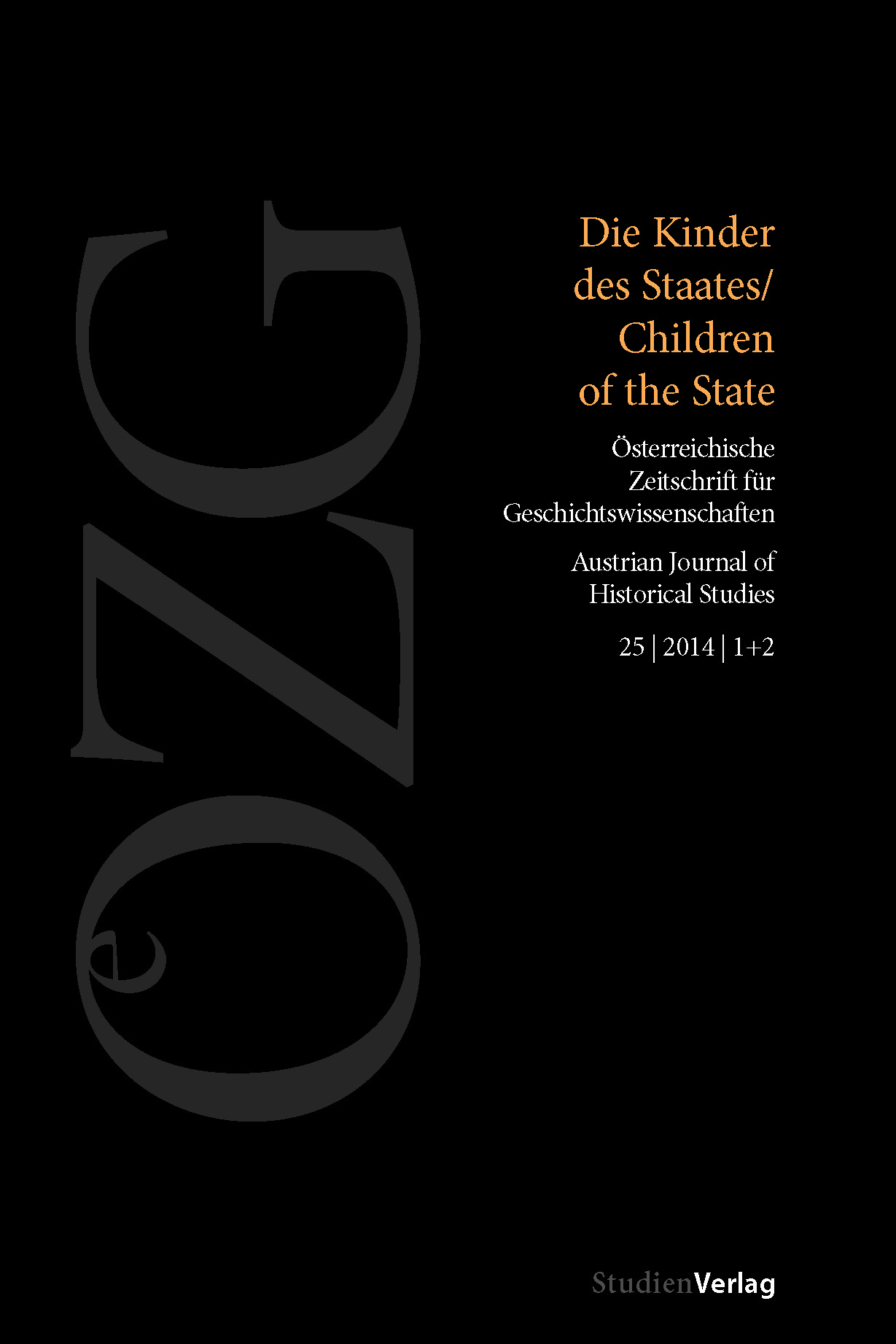Children as ‘organic capital’ of the state
Eugenisation of childhood in medical journalism 1900–1938
DOI:
https://doi.org/10.25365/oezg-2014-25-1-5Keywords:
Old and new Eugenics, medicine, psychoanalysis, education, medical selection, national healthAbstract
Eugenics aimed at a rationalisation of sexuality and reproduction in order to prevent the birth of children with ‘hereditary diseases’ or ‘genetic defects’. Therefore in a project of scientifical ‘social engineering’ ideas of health, well-beeing, quality of life and fitness were combined with sentences concerning social recognition and respect. In this paper I will analyse which conceptions of childhood were produced by the eugenic discours in the medical establishment during the first three decades of the 20th century. Which ideals of childhood were beeing quicked by the eugenic project of ‘quality instead of quantity’ and which consequences followed from this for those children, who were and are not in accordance with this ideals? The data for the analysis are drawn from an examination of articles published in the Wiener klinische Wochenschrift, the leading medical journal in Austria between 1900 and 1938.


